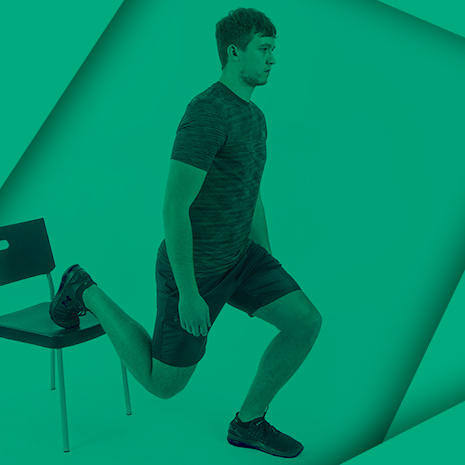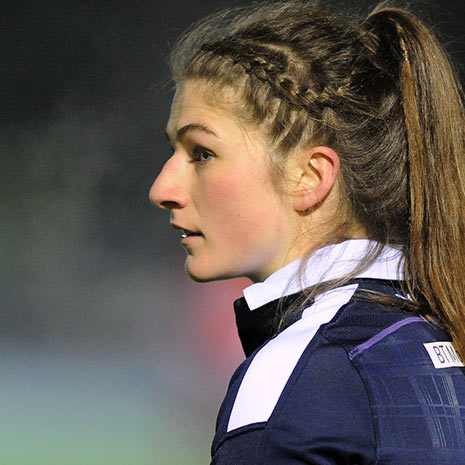RUGBY PASSING DRILLS
Rugby Development Officer Craig Dods takes us through some basic drills to improve your passing game.
While we could all stand and tell you 50 brilliant and correct coaching points on how to pass a rugby ball but is that really going to be taken on by the players? Probably not.
I like to keep it simple and focus on two main points of the catch and pass:

Early Catch: Allows time and space for the attacking player to evaluate then make a decision.
Follow through: By following through to your opponent, as you can see in the 2nd photo, your movement is automatically heading towards where the ball is. This means we are in a good position to support.
Everything in between these two points will generally take care of itself. Players will find a way that is easiest for them, and allows them to make the fastest and most accurate pass possible. Whatever it is you focus on, be sure to keep reiterating these points throughout your session, or even throughout your season.
PASSING GAMES
When the passing part of the session comes around, for me it is paramount that we have to have some form of game or rugby-like activity. By rugby-like activity, I mean something that is relevant to the game. My reasoning behind this is the type/weight/distance of pass varies on what players see in front of them. We must challenge players and show them as many different pictures as possible in training, so when it comes to games, they have more knowledge and are able to problem solve better.
Below are a few games/activities that can be added to any session either as a warm-up or as a main focus point. I am sure as coaches we have all done something similar, or even the same, however it is the way we coach and what we focus on that makes the difference.
Walking Touch Rugby
Description: Same as any normal game of Touch Rugby, when you are touched just pass the ball away. You are only allowed to walk however any pass that is made has to be passed as hard as you can to your teammate. If it is not accurate, accurate being to the players hands, not passed hard, or the receiving player did not ‘hand catch’ then it is a turnover. I suggest a wide, but short in length pitch for this.
Skills being developed: This focuses on the sole action of the pass. In younger players, when they start running with the ball the passes often go wayward. practise the skill and movement of the pass while still in a competitive, decision-making environment
Therefore this lets them practise the skill and movement of the pass while still in a competitive, decision-making environment.
Speed of pass is a massive focus for me at the moment. If you watch guys like Finn Russell, he enables Scotland to play a great expansive game because of his speed and accuracy of pass.
Progressions: A fairly simple progression is to start making it jogging, then eventually the speed and accuracy of pass should hopefully become natural. Whatever progression you feel like adding in, continue to be strict on the speed and accuracy of pass, even if it does feel like there is constant turnovers. Always carry 2 or 3 rugby balls in your hand so if there is a turnover, you can quickly chuck one in to keep the continuity of the game going.
Hawick Ball
Description: A warm-up favourite. You can run with the ball, pass in any direction and if you are touched you just pass the ball away. To score a point, you must pass to one of your teammates who catches it in a scoring zone.

Skills being developed: This is a great game and really brings out the creative element of players passing. Passing into space and finding space yourself. If you watch Glasgow Warriors, many of the tries they score come from players passing one handed, over people’s heads, round the back and it is great to watch. Games like this allow players to practice all these things while under a little bit of pressure from the opposing team.
Progressions: If a player does not pass within 1-2 seconds after being touched it is a turnover. This allows you to concentrate on the early catch part of the focus-points and in turn puts the players under more pressure to make a good passing decision. concentrate on the early catch part of the focus-points and in turn puts the players under more pressure to make a good passing decision
If a team scores, then let them turn round and attack the opposite way. This rewards good play and good attack by letting them keep the ball. We should always look to reward what we are coaching, so by having good attacks and good passing the team is rewarded. Plus nobody likes defending (well I certainly don’t) so this makes everyone work harder to get the ball back.
L Attack
Description: 5 attacker’s vs 4 defenders, in an ‘L’ shape like shown above. Ball starts in the corner of the ‘L’. As soon as the player with the ball moves, the defenders can all come into the square and we play from there

Skills being developed: The activity aims to challenge individual and group skills in a tight area. Defenders start in a prescribed position, so the attack should have obvious attacking chances. While we focus on the points of early catch and follow through here, it brings all types of things that the players will soon work out. For example running lines, staying square and opportunities to take the space themselves if the defence drifts too much.

Progressions: You can have the player who starts with the ball go any direction he wants (right or left) so the players have to react to whether they are defending or attacking and act accordingly. Players will hopefully start to think about overs or unders lines to stress the defence. If not, you can potentially give them a hint.
BASICS ARE BEST
You don’t need to try and reinvent the wheel every time you head out to coach your team on a Tuesday and Thursday. When it comes to coaching things like passing, just get it into some form of game or rugby like activity, stand back and let players solve the problems. get it into some form of game or rugby like activity, stand back and let players solve the problems
This, contrary to popular belief, is not a lazy way of coaching. Players need to be self-reliant as they are the ones playing in the game on a Saturday.
If you are constant with your messages throughout the season, and not trying to overcomplicate things players will respond well to it and you will see improvement in the key points you focus on.
Craig Dods is the Kelso Rugby Development Officer and Head Coach of Women’s 7’s Rugby to the Hungarian Rugby Union.
 Since his first involvement with coaching Mini Maroons at Gala RFC, through to coaching the Hungarian ladies 7’s team, Craig has a fundamental belief that basics are best. Language barriers mean there isn’t much room for explanation which Craig believes has allowed him to step back, keep his mouth shut and allow the players to solve the problems themselves.
Since his first involvement with coaching Mini Maroons at Gala RFC, through to coaching the Hungarian ladies 7’s team, Craig has a fundamental belief that basics are best. Language barriers mean there isn’t much room for explanation which Craig believes has allowed him to step back, keep his mouth shut and allow the players to solve the problems themselves.




Comments